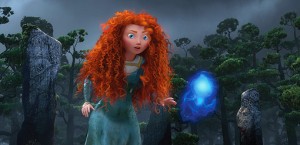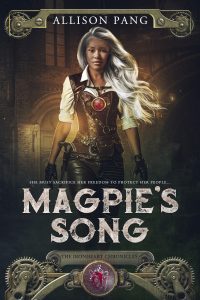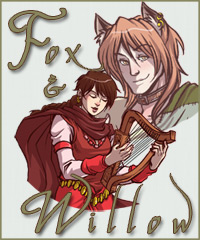 Before I left on vacation I had mentioned I wanted to talk a little bit about the movie Brave.
Before I left on vacation I had mentioned I wanted to talk a little bit about the movie Brave.
Spoilers ahead and all that, but I think the movie has been out long enough that most people have seen it (who wanted to.)
The thing is, as a whole, the movie seems to have gotten a bad rap from a lot of critics, particularly because of the plot. A lot seems to have been made out of the fact that Merida is Pixar’s first female lead, and with that in mind, perhaps she should have…done more?
The crux of the issue is this – the setup leads us to believe that Merida is a bit of a warrior princess type – she’s brash and headstrong, rides her horse, shoots arrows and is basically a tom-boy.
(Incidentally, this EW article on the subject insisting that Merida might be a lesbian because of this is just odd. Her sexuality is not at issue here. She might be a lesbian, or she might not. It doesn’t matter. Just because there isn’t a romance subplot here, doesn’t make it one way or the other and it’s ridiculous to speculate. Plenty of girls are tomboys who are straight, just as there are those that aren’t. )
But more to the point, I’m guessing there were a lot of young ladies who probably weren’t jumping at the idea of arranged marriages, even back then. Accepted at the time or not, I got the impression that there was a bit of a “growing up” line that got crossed. Very much like Wendy Darling who had to spend her last night in the nursery right before her last adventure with Peter Pan. (Only in this case, Merida’s mother’s sudden interest in marrying her off at such a young age may have indicated she’d hit her menses, which often meant “instant woman” in the eyes of the people.)
So, Merida has to go abruptly from being a girl into the role of womanhood, which she does kicking and screaming. I felt the metaphors rather apt – she’s being forced into wearing certain clothes and having to put on certain manners, to get married to unite the clans – in short, there aren’t many teenagers today who would take well to that – but again, where does the line get drawn between being able to run around with your shirt off as a child vs having to make sure you’re crossing your legs?
The one saving grace with the arranged marriage concept is that at least the three suitors she has to chose from are her age, more or less. Callow or not, it’s a bit more palatable than the reality, which would probably have seen her wed to a man who was 2 or 3 times that.
But here’s the thing. The tag line of the movie is about changing one’s fate. If you had the chance, would you do so?
What’s odd about this is that Merida doesn’t really attempt to change her fate. She tries to change someone else’s – her mother’s – in the hopes that will get her mother to leave her alone. (Which goes badly, of course.)
Many other Disney heroes/heroines go through a transformation process – by changing one’s fate, that means changing themselves in some fashion. Much of the time it’s physical – Ariel becomes human. Aladdin attempts to become a prince. Tiana becomes a frog. Mulan becomes a boy. Sometimes it’s a mental thing – going through trials to cast off the outer skin of who you were to reveal who you are.
But right off the bat, Merida seeks to change the one thing she thinks is holding her back. Which is a rather interesting lesson – because it when it comes down to it, most of us can’t change anyone except ourselves. As a teenager though, it makes a lot of sense – Merida feels she’s in the right, so why should *she* change? She’s got a pretty cushy lifestyle – she’s a princess, she’s having fun, and the one real impediment to that is now her mother.
Some of the complaints I’ve seen from reviewers ask why Pixar didn’t utlize Merida to her full potentional as a heroine. Why doesn’t she leave the castle and go out into the world, for example? Save the world? Defeat the big bad?
Maybe because it wasn’t that kind of story.
Sometimes, particularly in the epic sorts of tales, the little details get lost due to time constraints. The heart of this story is about a girl and her mother and how their roles change as Merida grows up – as well as how to compromise and take responsibility for one’s actions – *within* the constraints of daily society.
It’s easy to make grand, sweeping gestures and force change upon a people when the world is ending and they’re just grateful to still be alive. It’s another thing entirely to attempt to change it when it’s not.
Are there things that could have been better excuted story-wise? Absolutely. (No, I do NOT buy for one second that anyone is sewing jack shit on a galloping horse. I can’t even type on my iPad in the car, dammit.)
Anyway, I think that most reviewers and maybe even many movie goers are looking at it through the lens of The Hero’s Journey – which is one of the more popular story-telling tropes out there. Many fairy tales and books and movies follow it in one way or another. I think maybe we’ve been conditioned to expect it, so when it doesn’t turn out that way it makes people uncomfortable. The focus of The Heroine’s Journey is different in several ways (there’s a good comparison here) – but I think in this case Brave suffers because it doesn’t really fit in either one – it’s got elements of both, but it’s not always clearly defined.
My suspicion is that this is because Pixar changed directors mid-way. The original director and Brave concept creator was a woman who based it off her own relationship with her daughter…and then she was fired and replaced with a man. I think things got muddled up between making Merida in more of a traditional hero in a skirt vs letting her be a girl with a girl’s issues. Because they were afraid boys wouldn’t want to see the movie if they couldn’t relate. And the gods know, all our media has to be about the boys, right?
I still cried at the end, though.




One Response to Brave